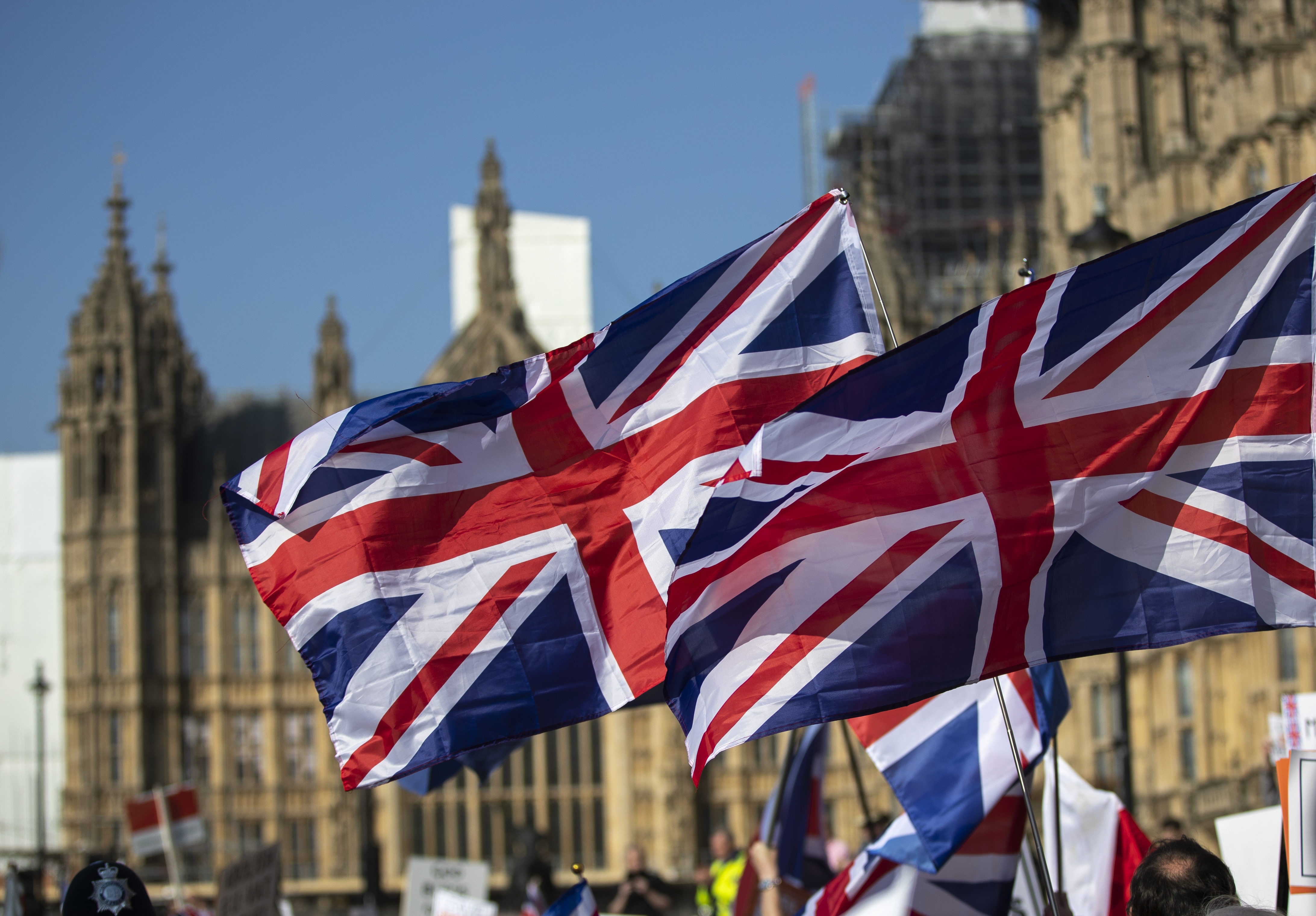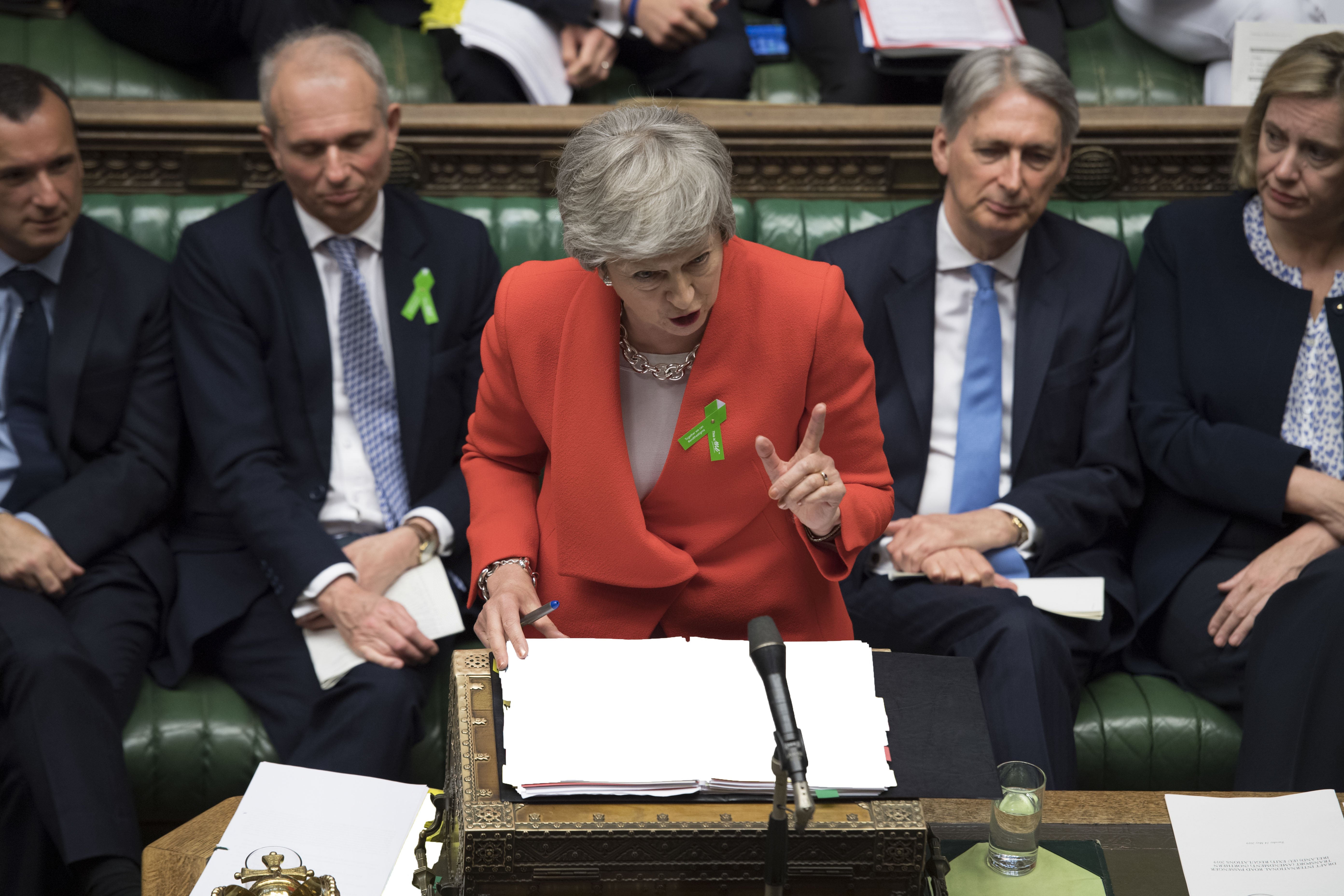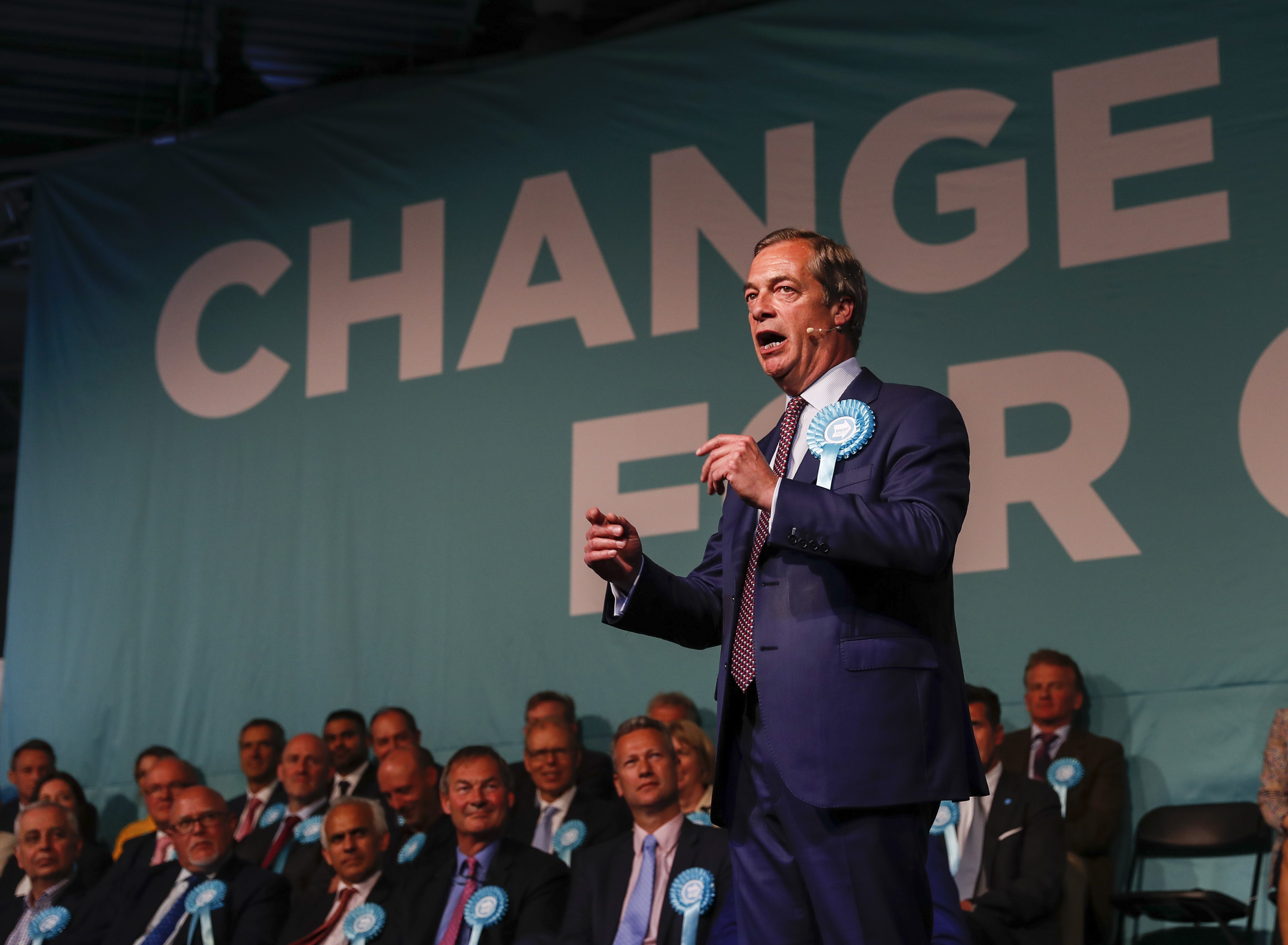Brexit row threatens to reshape political power in Britain
- By Robert Griffiths
 0 Comment(s)
0 Comment(s) Print
Print E-mail China.org.cn, May 23, 2019
E-mail China.org.cn, May 23, 2019

Britain's current "Brexit" political crisis is not only gripping the Conservative government and the main opposition Labor Party, but also poses additional challenges for the ruling class and its exercise of power.
Economically, that power has been increasingly concentrated in the City of London and its financial institutions such as the Bank of England, the merchant and clearing banks and the big insurance companies.
Through their control of credit, money supply, interest rates, financial and commodity markets, and their key shareholdings and directorships in many other large corporations, they dominate the British economy.
Even today, when British imperialism is often thought to have died along with the British Empire, the capitalist class has foreign investments in its own transnational companies that were valued at US$1.5 trillion in 2017. Jointly with Japan, this is the third biggest stock of foreign direct investment, behind its American and German counterparts, and narrowly ahead of the French.
In terms of portfolio investment in shares, bonds and other mostly short-term financial assets abroad, Britain's capitalists are in fifth position internationally with US$3.4 trillion in 2018, behind only the United States, Luxembourg, Japan and Germany. That ranking would be higher were such investment via the Cayman Islands - one of many tax havens under British jurisdiction - included.
With such substantial assets, Britain's capitalists not only understand the importance of wielding strong State power. They also value Britain's alliances with U.S. imperialism and with an economically powerful European Union (EU) that is developing its own NATO-aligned military dimension.

With so much to protect, therefore, they have always preferred to have the Conservative Party, which they bankroll and promote, in office. The Labor Party, with its historic trade union links and mass working-class electoral base, is seen as a less reliable servant of monopoly capitalist interests despite the efforts of Tony Blair in promoting "New Labor" in the 1990s and beyond.
Now, however, the Conservatives are deeply mired in crisis, their usefulness to their corporate paymasters in question.
The main big business organizations - the Confederation of British Industry, the Institute of Directors, most of the big banks and various employers' federations - campaigned for Britain to remain in the EU and its Single Market during the June 2016 referendum.
Britain's monopoly corporations trusted the Tories to deliver a "semi-Brexit" which would formally take Britain out of the EU, while maintaining alignment with the pro-business rules of the EU Single Market.
However, a large section of the public has not been fooled; nor have a hundred or so Tory MPs. They demand a "full Brexit" so that British governments can again exercise sovereignty over economic and social policies, international trade and immigration.
On the other side, many Labor and other opposition MPs want to bind Britain to a customs union with the EU and the Single Market, or to abort Brexit altogether through a parliamentary vote or a second referendum. In most cases, they have shamelessly betrayed previous promises to respect the referendum decision.
Prime Minister Theresa May and Chancellor of the Exchequer (finance minister) Philip Hammond have failed three times to get their Withdrawal Agreement through the House of Commons. EU departure was first postponed from March 29 to April 12 or May 22 and now the divorce date is October 31.
The result has led to bitter recrimination in Conservative ranks and the loss of more than 2,000 seats in the May 9 local government elections. Pro-EU supporters switched to the Liberal Democrats, while many pro-Brexit ones stayed at home. Theresa May has since pledged to resign if she can get her amended Brexit package through parliament next month.
Not surprisingly, Britain's mainstream politicians are held in greater contempt by the electorate today than at any time since the 2008/09 expenses scandal, when their widespread greed and dishonesty was uncovered by the pro-Tory, pro-Brexit Daily Telegraph newspaper.

Mass defections of Conservative and working-class Labor voters to the newly-formed Brexit Party (BP) of Nigel Farage (mastermind of the original referendum victory) in the European parliamentary election on May 23 will further intensify Britain's political crisis. So, too, would a second referendum or, without one, the revocation of Britain's notice to quit the EU or a no-deal Brexit.
Despite advances by the BP, LibDems and Greens, one of the two main parties is still likely to form the government after the next General Election, although a largely pro-Brexit Conservative Party under new leadership still may be too divided and discredited to win office. In the election stakes, the ruling class doesn't like backing losers.
Yet the alternative prospect of a Labor government headed by left-wing anti-imperialists like leader Jeremy Corbyn and Shadow Chancellor John McDonnell horrifies the state-monopoly capitalist establishment; even more so if such a government is unfettered by EU Single Market and Customs Union rules.
Far more palatable would be the removal of Labor's left leadership before or immediately after the General Election. Then, what would probably be a minority Labor government could be constructed in alliance with equally pro-big business, pro-EU LibDem and Conservative MPs.
There would be no shortage of takers in the present Parliamentary Labor Party for that scenario.
Robert Griffiths is a former Senior Lecturer in Political Economy and History at the University of Wales and currently the General Secretary of the Communist Party of Britain.
Opinion articles reflect the views of their authors only, not necessarily those of China.org.cn.
If you would like to contribute, please contact us at opinion@china.org.cn.





